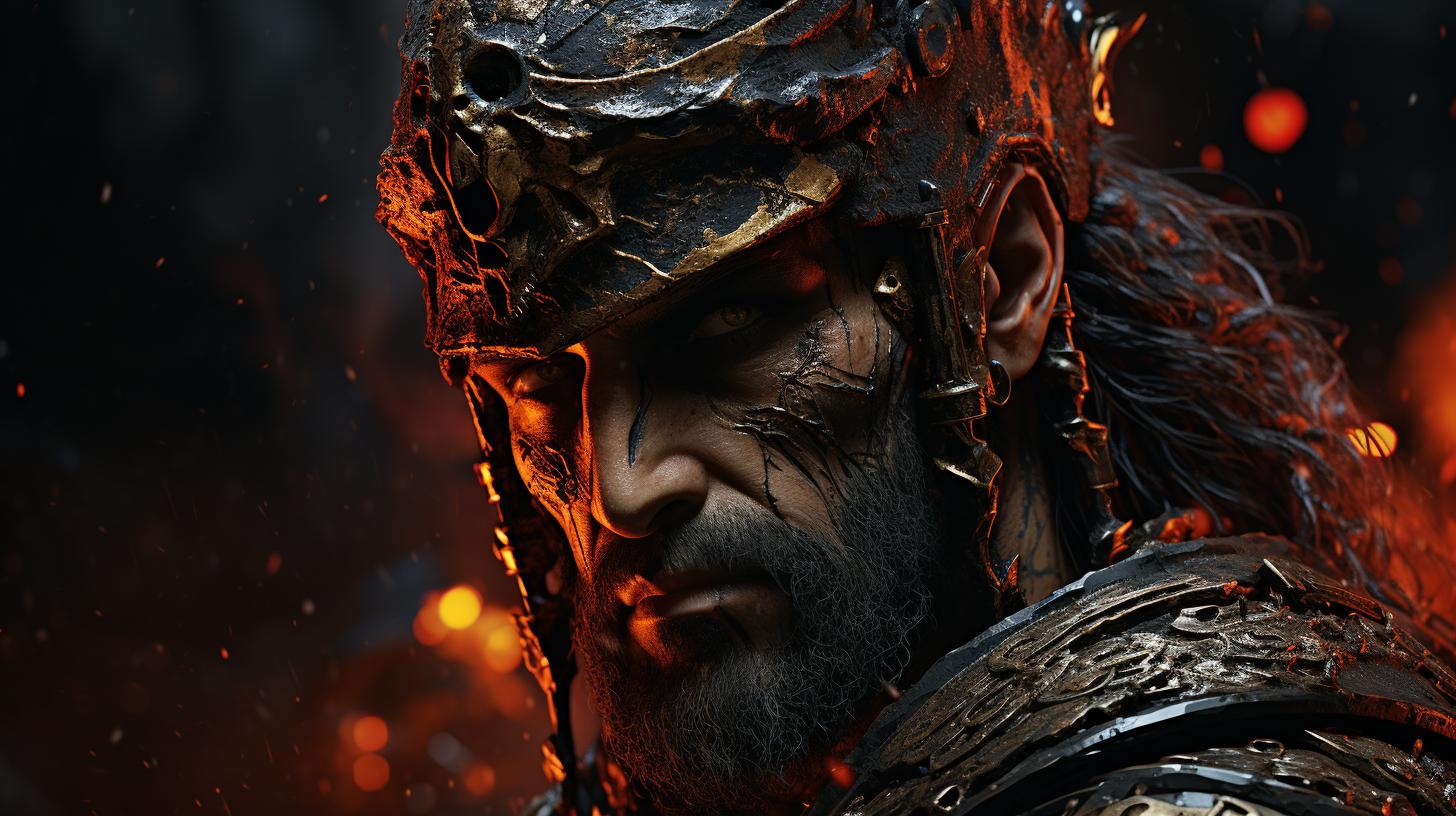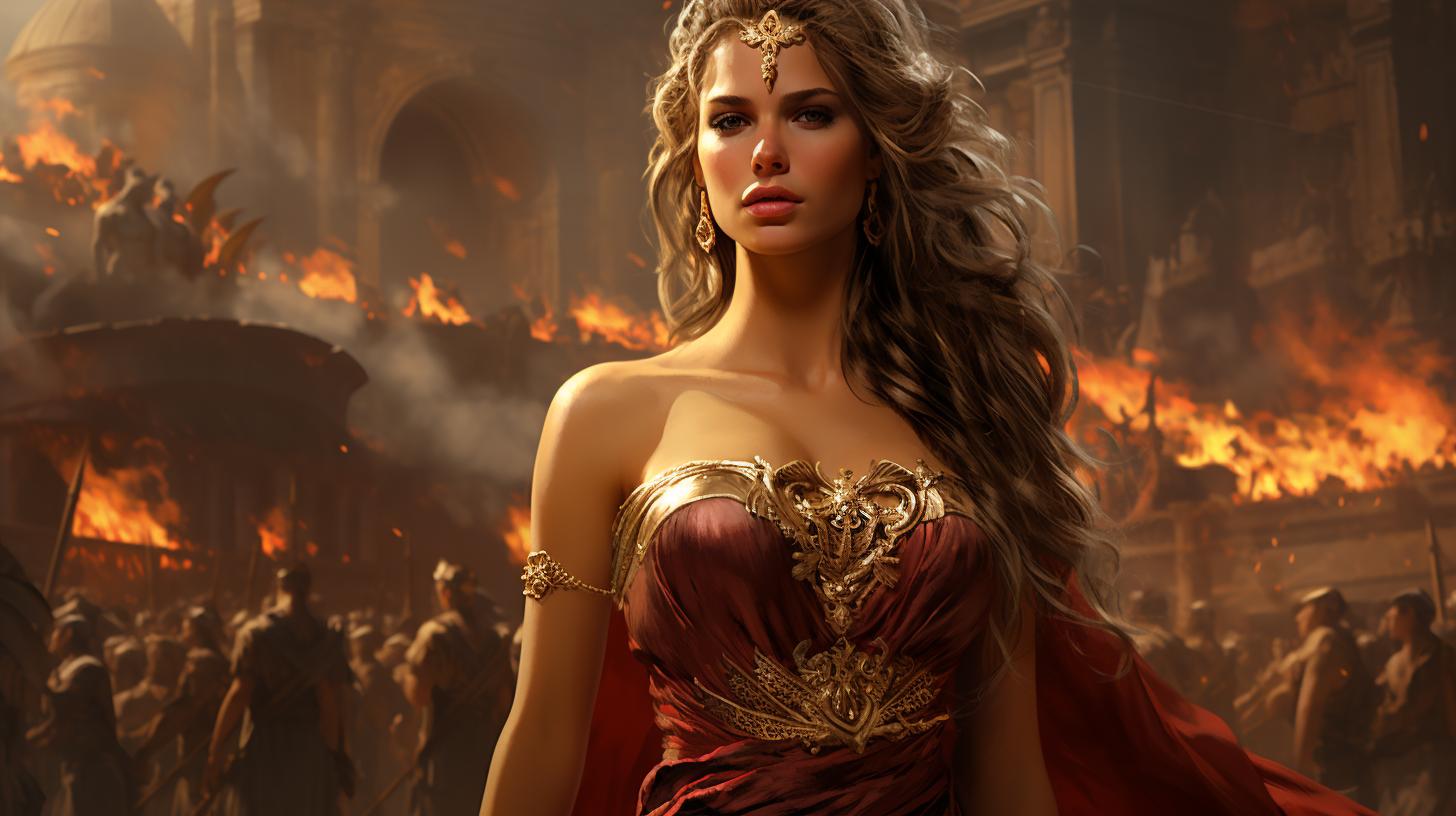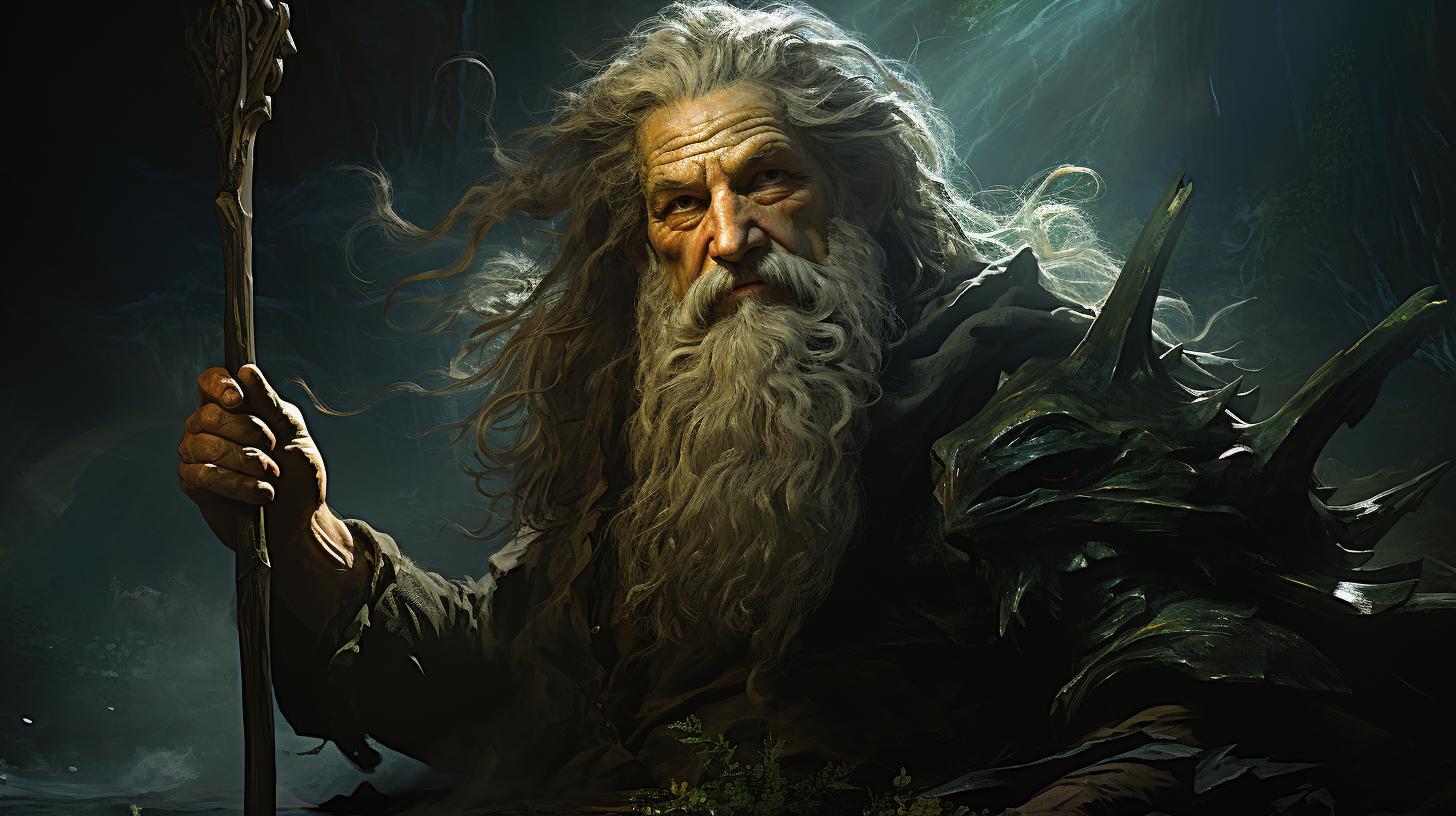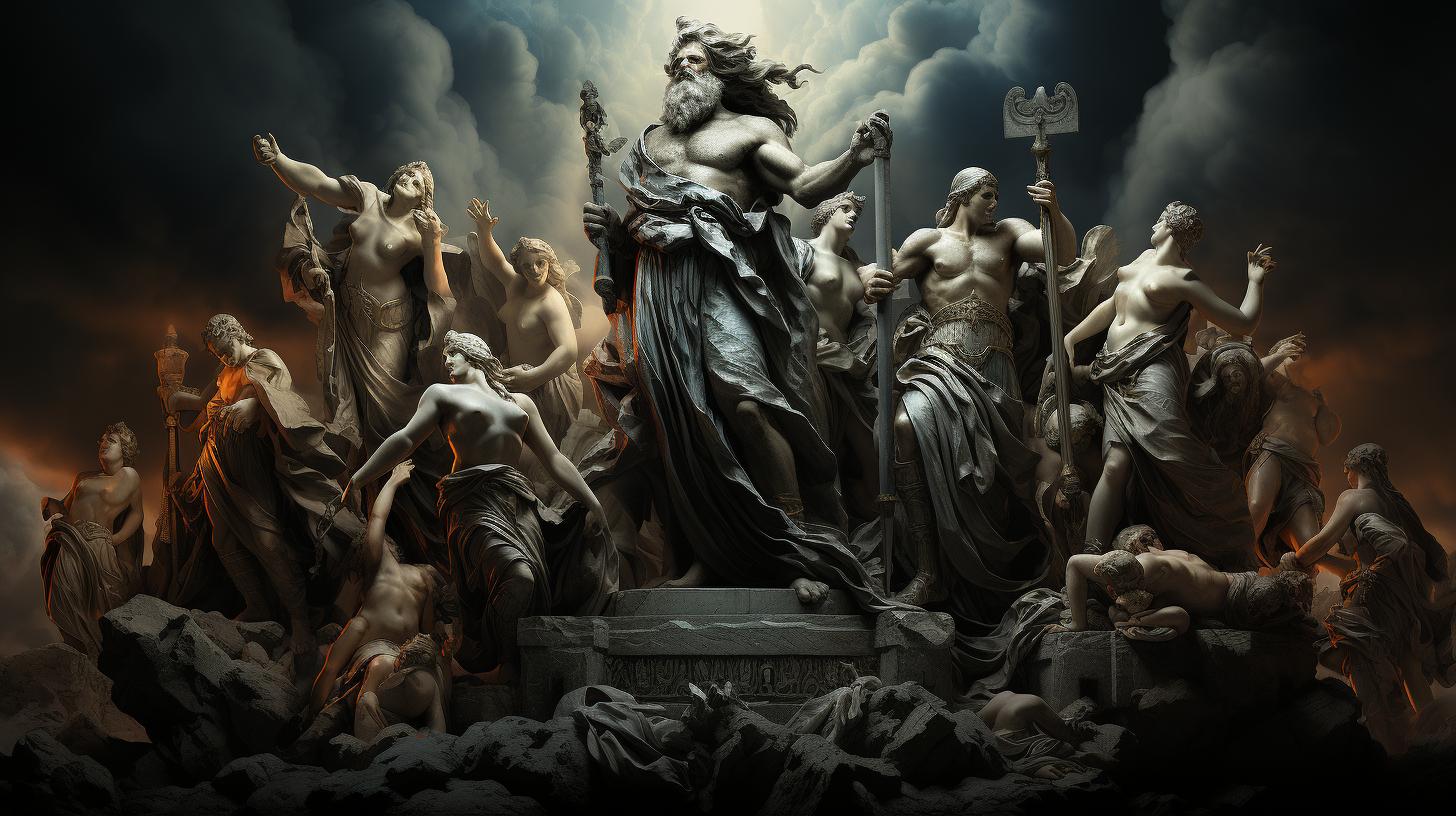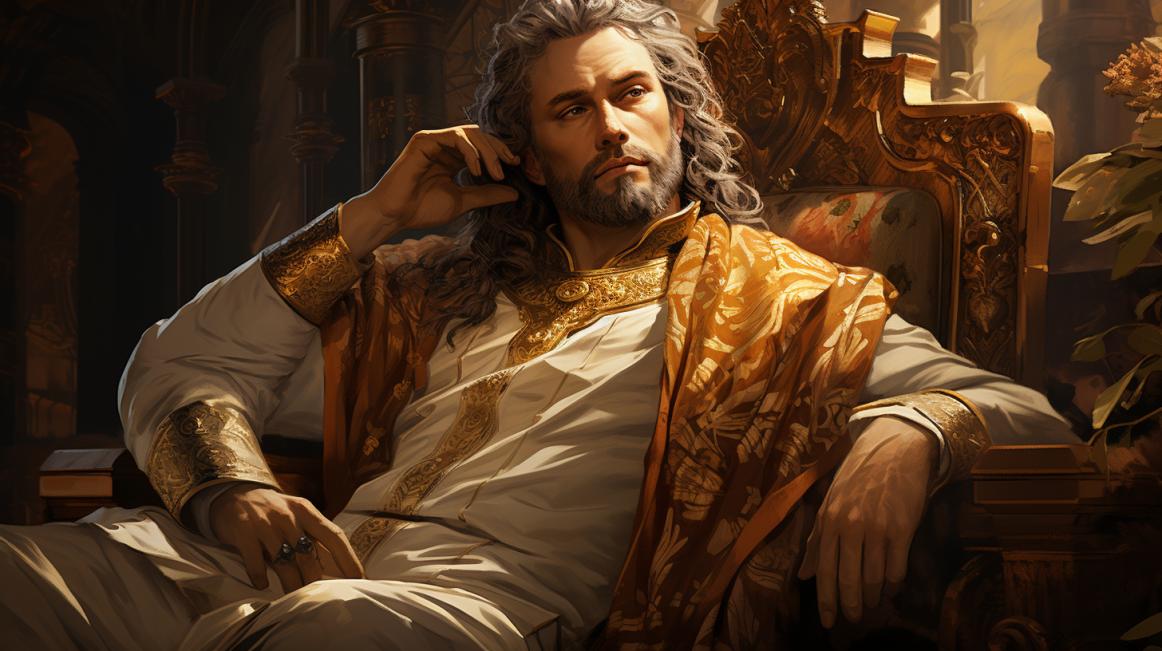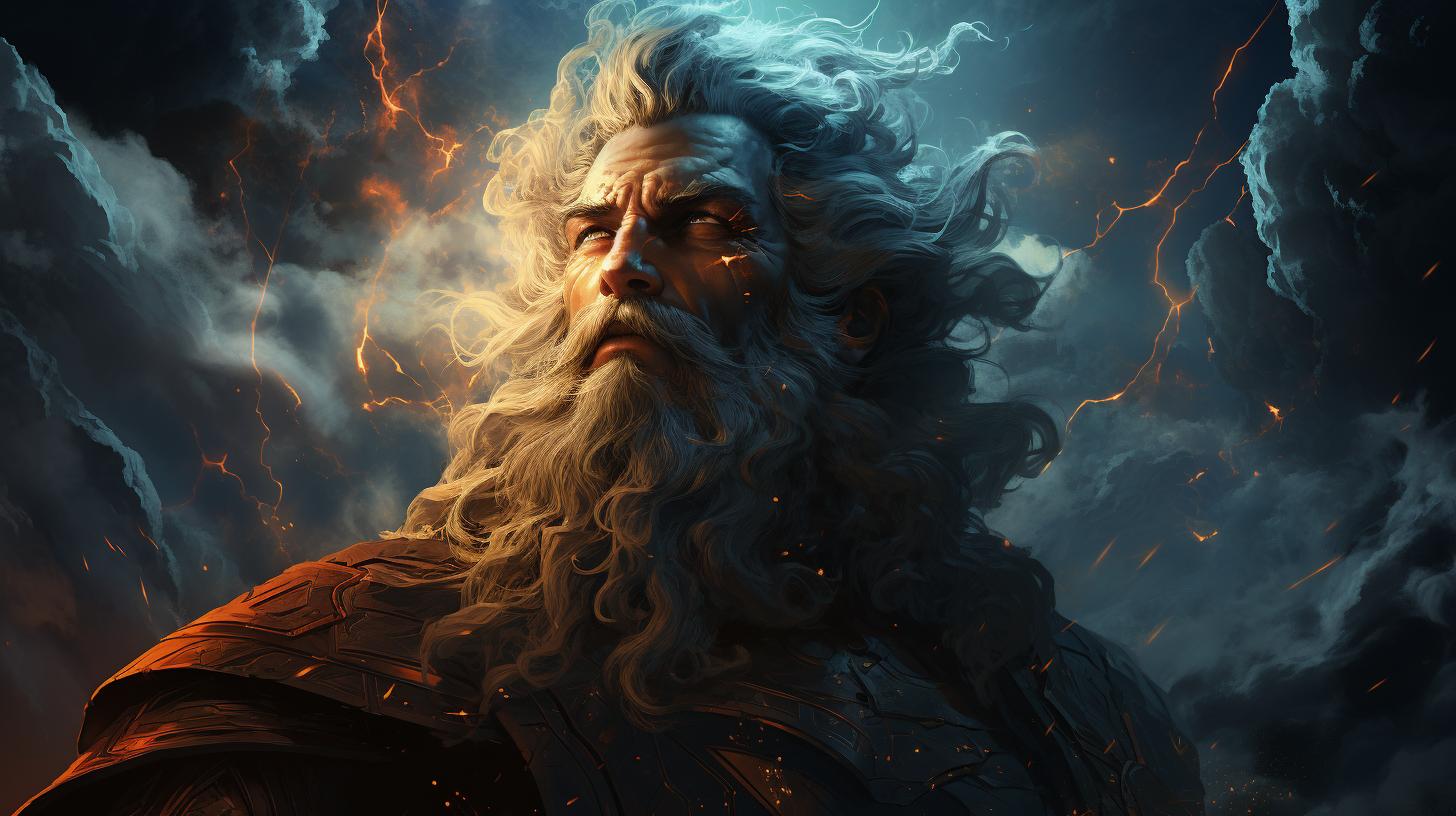Enyalius: The Fascinating Greek God of War
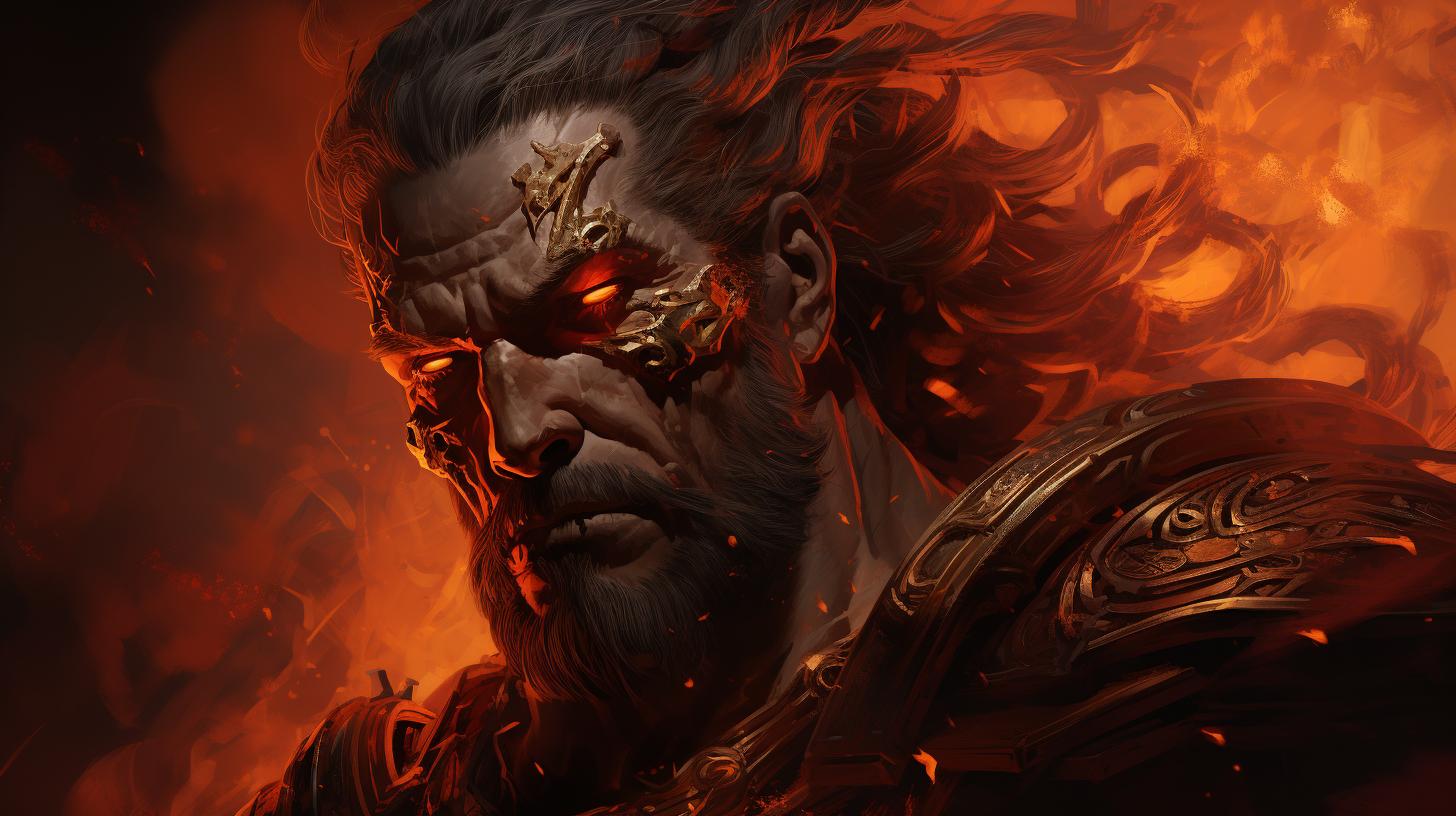
Enyalius, the Greek god of war, has long been a subject of debate and confusion in Greek mythology. Some accounts suggest that Enyalius was initially considered a title for Ares, but later they were recognized as separate deities.
En Spartan culture, Enyalius held significance and was honored through sacrifices. In a comedic play by Aristophanes, Enyalius is mentioned as an alternate name for Dionysus. Despite the limited information available about Enyalius’ personal life and appearances, his parentage is attributed to Ares and Enyo.
Join us as we delve into the mysteries surrounding Enyalius and explore his connections to the world of ancient Greek mythology.
The Role of Enyalius in Greek Mythology
In Greek mythology, Enyalius plays a significant role as a deity associated with war. He is often depicted as the loyal companion of Ares, the god of war. Let’s explore the different aspects of Enyalius’ role in Greek mythology, examining his position as the companion of Ares and his significance as a minor god of war.
Enyalius as the Companion of Ares
Enyalius is commonly portrayed as the faithful companion and associate of Ares. He accompanies Ares in battles and conflicts, embodying the brutal and aggressive aspects of warfare. Enyalius’s association with Ares demonstrates his status as a prominent figure in the domain of war and violence.
Enyalius as a Minor God of War
Besides his role as Ares’ companion, Enyalius is also regarded as a minor god of war in Greek mythology. While Ares embodies the ferocity and bloodlust of war, Enyalius represents a more specific aspect of the battlefield.
As a minor god of war, Enyalius personifies the chaotic and destructive nature of armed conflict, emphasizing the brutal realities faced by warriors in combat.
Through his association with Ares and his unique role as a minor god of war, Enyalius contributes to the complex tapestry of Greek mythology, highlighting the multifaceted nature of warfare and its impact on ancient Greek society and culture.
Enyalius in Spartan Culture and Worship
Enyalius in Spartan Mythology and Rituals
Sparta, known for its fierce warriors and military culture, held Enyalius in high regard within their mythology and rituals. In Spartan belief, Enyalius was seen as a deity closely associated with war and battle, embodying the spirit of courage, strength, and strategic prowess.
Spartan mythological accounts often depicted Enyalius as a formidable warrior, fighting alongside Ares and the other gods in epic battles. The presence of Enyalius in these stories reinforced the importance of warfare and valor in Spartan society.
Sacrifices and Practices Associated with Enyalius
The worship of Enyalius in Sparta involved specific rituals and sacrifices dedicated to the god of war. One such practice was the sacrifice of young dogs, which were offered to Enyalius as a symbolic gesture of devotion and preparation for battle.
Notably, a statue of Enyalius, bound by chains, stood near the temple of Hipposthenes. This sculpture served as a visual representation of the power and might that Enyalius possessed, highlighting the reverence and fear that Spartans held for the god of war.
- Young dogs were sacrificed to Enyalius
- A statue of Enyalius, symbolizing his power, was placed near the temple of Hipposthenes
These practices and rituals surrounding Enyalius in Spartan culture reinforced the notion that war and battle were integral parts of their society.
The Spartans believed in honoring Enyalius to ensure their success and protection in times of conflict.
Enyalius and Dionysus: The Connection and Disapproval
Enyalius, the Greek god of war, is intriguingly linked to Dionysus, the god of wine and revelry, in Greek mythology. This connection between Enyalius and Dionysus is a subject of both fascination and disapproval.
Enyalius as an alternate name for Dionysus
In Greek comedy, specifically in a play by Aristophanes, Enyalius is mentioned as an alternate name for Dionysus. However, it is worth noting that the characters in the play censor and avoid mentioning both Ares and Enyalius.
This suggests a certain level of disapproval or discomfort associated with connecting Dionysus with the god of war.
Aristophanes’ Comedy and the Avoidance of Mentioning Enyalius
In Aristophanes’ comedy, the avoidance of mentioning Enyalius demonstrates a deliberate effort to dissociate Dionysus, the god of wine and celebration, from the domain of war and conflict represented by Enyalius.
The mention of Enyalius as an alternate name for Dionysus could be seen as a comedic device to highlight the incongruity and tension between these two contrasting deities.
This disapproval and conscious avoidance of connecting Dionysus with Enyalius in Greek comedy reflects the societal inclination to keep war and celebration as separate spheres, acknowledging the diverse and distinct aspects of Greek mythology.
The Elusive Nature of Enyalius
Limited Information on Enyalius’ Personal Life and Adventures
When it comes to Enyalius, the Greek god of war, details about his personal life and adventures are scarce. Ancient texts provide little information regarding his specific exploits or the nature of his existence.
While Enyalius is mentioned as a deity associated with war, the mythology surrounding him remains clouded in mystery.
Lack of Visual Representations of Enyalius
Unlike many other prominent gods in Greek mythology, Enyalius lacks visual representations or depictions of his physical appearance. This absence of visual references makes it challenging to visualize his form accurately.
Instead, any images attributed to Enyalius are generally based on those of Ares, his companion and sometimes his father.
Overall, the limited information available about Enyalius’ personal life and the lack of visual representations contribute to the enigmatic nature surrounding this ancient Greek god.
- No detailed accounts of Enyalius’ personal life and adventures
- Scarcity of visual representations or depictions of Enyalius’ physical appearance
The Family of Enyalius
In Greek mythology, Enyalius, the god of war, is said to have a lineage intertwined with powerful gods and goddesses. His parentage and family connections shed light on his importance and presence in the world of war and battles.
Enyalius’ Parentage: Ares and Enyo
Enyalius is believed to be the son of two prominent deities – Ares, the god of war, and Enyo, the goddess of destruction. Their union brought forth Enyalius, granting him a significant place within the realm of warfare.
While some accounts mention Ares and Enyo as Enyalius’ parents, others argue that he may instead be the offspring of Cronos and Rea.
Siblings and Companions of Enyalius in Battle
As a god of war, Enyalius is associated with a diverse group of siblings and battle companions.
His half-siblings Phobos and Deimos, the personifications of fear and dread, often accompany him in the heat of battle. Enyalius also shares companionship with Eris, the goddess of strife, and Anteros, Eros, Harmonia, and Adrestia among his siblings.
Together, they form a formidable force, embodying various aspects of war and its consequences.
Enyalius’ family ties not only solidify his place among the gods but also reflect the interconnectedness of war, destruction, and conflict in Greek mythology.
Exploring the Mystery: Enyalius, Ares, and Lost Mythological Accounts
As we delve deeper into the mythology surrounding Enyalius, it becomes clear that there are still many unanswered questions and lost accounts that contribute to the enigmatic nature of this deity.
In particular, the relationship between Enyalius and Ares has been a subject of speculation and debate.
Historical records and ancient texts offer tantalizing glimpses into the possible existence of distinct mythological accounts involving Enyalius.
Some theories propose that Enyalius may have been a separate deity altogether, while others suggest that the name Enyalius could have simply been an alternative title for Ares.
Unfortunately, many of these lost mythological accounts have been obscured by time, making it challenging to piece together a comprehensive understanding of Enyalius and his role in Greek mythology.
However, this mystery only fuels our curiosity and desire to uncover more information.
Through comparative analysis and primary sources, we continue to explore ancient texts, seeking any references or hints that may shed light on Enyalius’ true nature.
The intertwining of Enyalius and Ares in various narratives further complicates the search for clarity, as the lines between these two deities blur and overlap.
Additionally, the exploration of lost mythological accounts allows us to contemplate the influence and significance of Enyalius in ancient Greek culture.
These accounts might hold the key to understanding Enyalius’ cultural significance and his role in religious practices beyond what is currently known.
Although the search for Enyalius’ elusive nature may seem challenging, it is precisely this mystery that drives our fascination and determination to uncover the truth.
By examining every available source and considering various interpretations, we aim to illuminate the forgotten aspects of Enyalius’ mythology.
Join us on this journey of exploration as we piece together the fragments of ancient tales and delve into the lost mythological accounts surrounding Enyalius, Ares, and the enigmatic world of Greek mythology.
.

